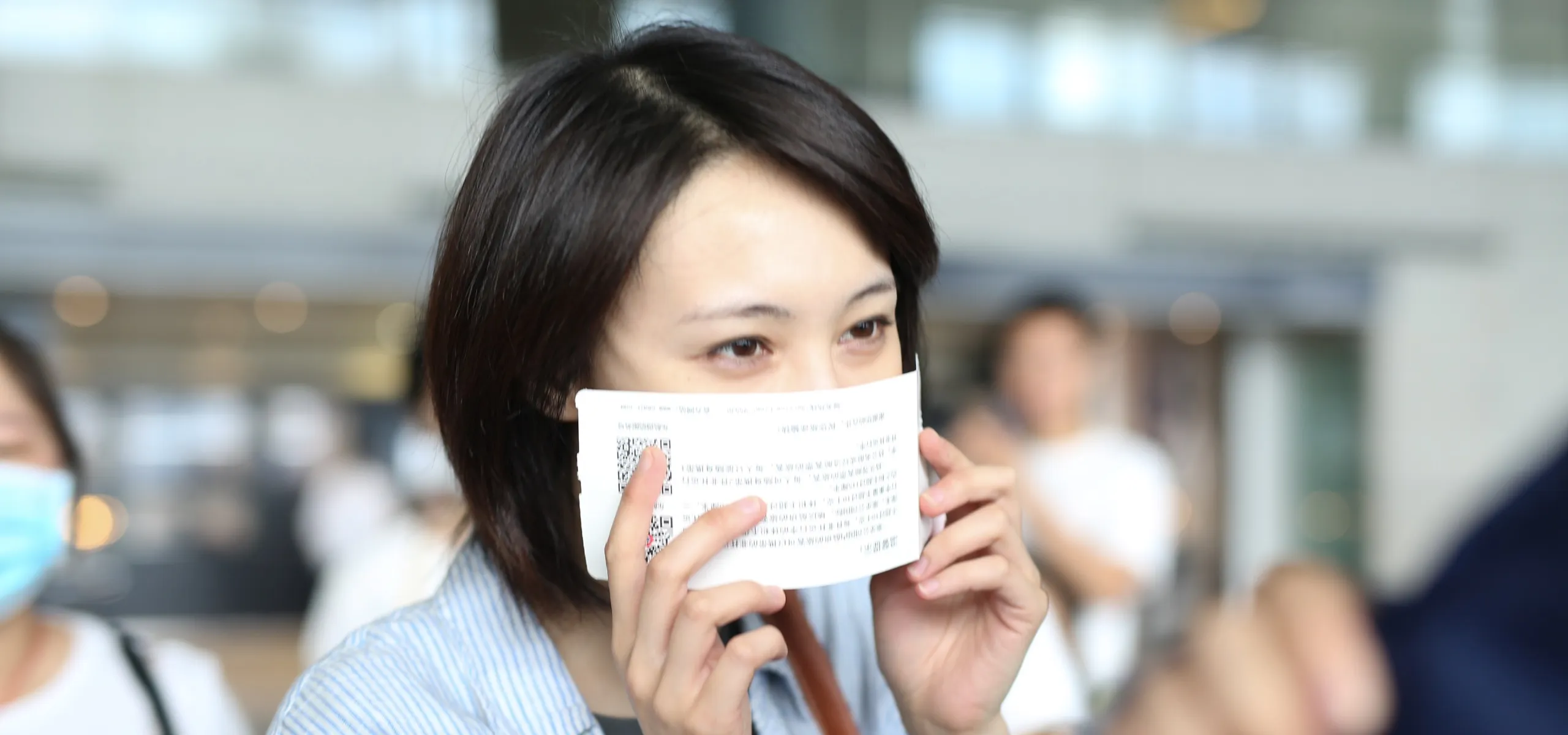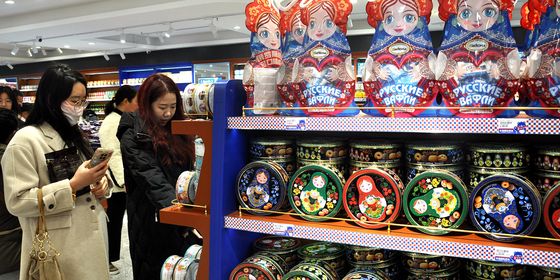The biggest Chinese celebs engulfed by scandal so far in 2021
With Chinese authorities imposing strict new regulations on the entertainment industry in the last few weeks, celebrities may be watching their backs even more than usual—or else, they may find themselves disappearing under the rubble of a scandal-induced “塌房 (tā fáng, house collapse)” while a barrage of “瓜 (guā, melons, gossip)” rains down upon them.
The term “塌房” originated from a 2019 clip on a Korean TV news channel in which a middle-aged woman told a reporter: “I heard that a house collapsed, so I went to watch the fun. But it turned out to be my own house. Tears suddenly streamed down my face.” The video went viral in China, and the expression “house collapse” gained popularity among pop-star fans to describe a situation when scandals about an idol suddenly emerge just as their fans are busy gossiping about other celebrities. Recently, so many houses in the industry have collapsed that many netizens have lamented: “I'm afraid that someday I will wake to find the whole entertainment business has disappeared.”
In China, stars who “collapse” really can disappear from the public eye if their transgressions attract the ire of authorities. Their shows may be removed, endorsements deals lost, social media accounts suspended, and their name even erased totally from public life. This year has seen some of the biggest names in Chinese entertainment buried as their careers disintegrate around them—here are some of the most infamous examples:
Kris Wu arrested for rape
In July, a 19-year-old woman, Du Meizhu, accused Chinese-Canadian pop star Kris Wu (Wu Yifan) of sexually assaulting her two years ago when she was drunk. She also claimed that Wu had seduced many other young women, including some minors, into sexual relationships by promising them employment in return.
After Du published her accusation on social media, dozens of brands terminated their endorsement contracts with Wu, and his music was taken off online platforms. Wu’s social media accounts were suspended, and he was detained on August 1, though he denies ever having sex with women under 14, China’s age of consent. But on August 16, prosecutors in Beijing’s Chaoyang district announced that Wu had been formally arrested and charged on suspicion of rape.
Huo Zun accused of cheating
On August 10, dancer Chen Lu, a former partner of singer Huo Zun, published a long post on Weibo accusing Huo of cheating on her repeatedly during their nine-year relationship. Chen claimed she had given up many job opportunities in order to support Huo’s career, and believed they would get married, but Huo demanded that she hide their relationship from the public. She also revealed a series of WeChat screenshots showing a group chat in which Huo had ridiculed her, bragged about having sex with other women, and talked trash about the variety show Call Me By Fire, on which he had been announced as a guest.
According to Chen, Huo had offered to pay her off, and they had signed an agreement to break up peacefully on condition that Huo paid Chen 9 million RMB. But before Chen got the full payment, Huo enlisted the help of several lawyers and friends to threaten her so that she would break off the agreement.
On August 14, Huo’s studio published a statement announcing his withdrawal from the entertainment industry, though they denied Huo had been unfaithful. When Call Me by Fire premiered on August 12, Huo had been edited out of the show completely.
Zhang Zhehan banned after visit to Japanese war shrine
Actor Zhang Zhehan shot to fame earlier this year after starring in the costume drama Word of Honor. However, his downfall came soon after. Early in August, photos of Zhang posing at the Yasukuni Shrine in Tokyo, which honors some of Japan’s major war criminals, began to circulate on social media. He was also found to have attended a wedding ceremony at Nogi Shrine, another infamous shrine that honors an imperial Japanese military officer who was part of the invasion of China during the First Sino-Japanese War. Netizens continued digging through Zhang’s Weibo posts and discovered a photo of him doing a Nazi salute in front of the Yuhuatai Martyrs Memorial Hall in Nanjing, and a picture of a car bearing Japan’s imperial Rising Sun flag.
On August 13, Zhang made an apology via social media, but neither netizens nor his business partners were impressed. Soon, all of the brands Zhang endorsed had terminated their agreements with him, and on August 15, the China Association for Performing Arts, a government-backed trade union, urged the industry to blacklist Zhang since his behavior had harmed the feelings of the nation and negatively influenced his followers.
All films and TV shows starring Zhang, including the wildly popular Word of Honor, were removed from online platforms, and the actor’s social accounts have been suspended permanently by all social media platforms including Weibo and TikTok. In the aftermath of Zhang’s scandal, the central government’s National Radio and Television Association called on radio, television and production companies to take a zero tolerance approach towards their stars’ ethics.
Zheng Shuang's tax and surrogacy double whammy
Earlier this year, actress Zheng Shuang experienced the mother of all downfalls when it was revealed she had two children by surrogacy (illegal in China) in the US, then tried to abandon the infants in America. Things only got worse from there. Last week, the Shanghai Municipal Tax Service fined Zheng for tax evasion and undeclared income while she was filming TV series A Chinese Ghost Story. Zheng was ordered to repay taxes of 72 million RMB, together with a fine of nearly 220 million RMB for tax evasion.
The NRTA then stated that A Chinese Ghost Story would be prohibited from airing, and no other broadcaster or video service platforms are allowed to invite Zheng to shows. Dramas featuring Zheng have also been removed from online platforms. Zheng has since apologized and stated she would “overcome the difficulties to pay all the taxes and fines.”
Zhao Wei's mysterious disappearance
Sometimes, celebrities are erased from the entertainment world without a clear explanation. Last weekend, for example, China’s major streaming platforms removed billionaire actress Zhao Wei’s name from many films, TV dramas, and variety shows she starred in, while her Weibo account also became inaccessible.
Zhao is one of China’s most recognizable names, a star of the drama series My Fair Princess, and also owns multiple businesses, including a vineyard outside of Bordeaux in France. Rumors began to circulate that she had moved to France due to the controversy, though Zhao has since denied she left China. “What's happening with Zhao Wei?” soon became the hottest hashtag on Weibo’s trend list—and at press time, the mystery of how exactly Zhao crossed the line is still unsolved.
Zhao is no stranger to controversy. Back in 2001, she received criticism for wearing a dress featuring a Japanese military flag. Meanwhile, Zhang Zhehan, also damaged by various missteps relating to Japan’s wars with China, was reportedly signed to Zhao's entertainment company last year.
In 2018, Zhao and her husband were banned from acting as senior executives on listed companies for five years by the Shanghai Stock Exchange because of their conduct during a takeover bid in 2016. The bid invited scrutiny from China’s Securities Regulatory Commission, after they found misleading statements and major omissions in the takeover paperwork. The Shanghai Stock Exchange pointed out that the celebrities and their company had “severely misled the market and its investors” and “seriously disrupted normal market operations and order.” The authorities referenced celebrity hype as part of the problem, but so far neither Zhao nor the authorities has given a clear explanation for what happened.
While the true cause of Zhao’s “collapsed house” remains a mystery, it seems likely more celebrities will meet the same fate as authorities get more strict on the entertainment industry and fan culture. In late August, for example, the Cyberspace Administration, China’s top internet watchdog, issued a notice that all celebrity ranking lists should be canceled, while groups that encourage “chaotic” fan culture by, for example, encouraging fans to raise money for celebrities or spreading gossip about them, will be cleaned up or shut down. Celebrities should beware the shaky foundations of their stardom.












